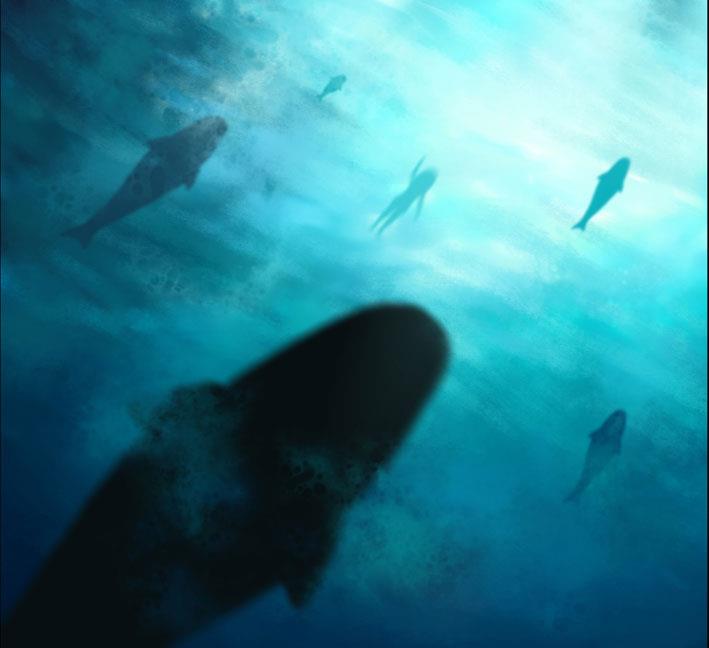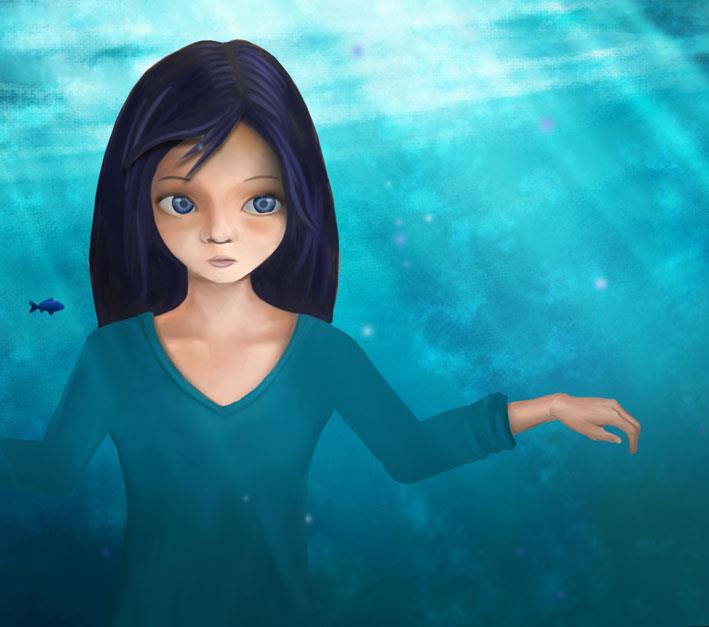Orchestral music and the classical repertoire no longer reside exclusively on the concert stage. In fact, even those among us who may have never stepped into a concert hall, have experienced classical music through the interdisciplinary platforms of cinema, video-art and video games.
In many ways, the 21st century composer is now confronted with many "modern" realities and Ruben Zahra, one of Malta's finest composers, is all too aware of this.

When did you realise you wanted to become a composer?
I believe everyone has a mission and a passion in life and, if you're lucky, they're one and the same. Mine is music but, as a child, I was more drawn to the visual arts. Then, at the age of 13, I bought a small electronic keyboard and soon discovered that I had a good ear for music. I could find melodies on the keyboard, as well as create new ones of my own. Having said that, I don't think you can learn to become a composer. You're born with the gift and, of course, music pedagogy is necessary to develop the art and technique.
At the University of Malta, I studied Theatre Studies and Music Studies. Theatre has been a big influence on my work and I feel that these studies fostered my interdisciplinary approach. When I think of a music project, I don't just stop at the music: I'm intrigued by the multimedia aspect of today's art scene and I find it very exciting to bring these influences into my projects.
In Malta I studied composition privately with Pawlu Grech but, following my BA in Music and Theatre Studies, I was awarded a scholarship by the Italian Cultural Institute to further my studies at the Academy of Santa Cecilia in Rome with Azio Corghi and electronic music with Giorgio Nottoli at the music conservatory of Frosinone. While there, I was also very lucky to study film music with Ennio Morrinone.
Do you consider it important for local musicians to go abroad to further their studies?
I believe that it is vital for any artist to spend time living abroad in any major city, particularly because it's not just about developing your technique. When you are living in a great European city like Rome, London, Paris, Vienna or Amsterdam, you benefit from the vibrant cultural scenario of that city. You participate in the contemporary art scene as it is happening; you experience some of the best art exhibitions, orchestras, contemporary ballet, and opera taking place there. You get the opportunity to be a part of the community of artists living in that city and, most importantly, you start to evaluate your work with an international yard-stick.

After being in Rome for four years, you spent a year in Malta between 1999 and 2000 before taking off once more... This time to California. How was that buffer year between Italy and the USA?
It was a very exciting time for me because that was the year I co-founded Etnika together with Andrew Alamango, Ġużi Gatt and Steve Borg. Etnika was a project aimed to revive Malta's traditional instruments: iż-żaqq (bagpipe), iż-żummara (reedpipe), il-flejguta (cane flute), it-tanbur (tambourine) and iż-żafżafa (friction drum). By the 1970s, these instruments had pretty much become extinct.
Much like Malta has its own language, it also has its own music... In fact, I wanted to show that with the right musical arrangement, these instruments could appeal to a contemporary audience, as well as to an international crowd. I was proven right because, when I returned from California, I created a new folk music ensemble called Nafra. Since then, the ensemble has travelled all over Europe, as well as to Tunisia, Egypt, Israel, India and Hong Kong. I am very interested in the connection between folk music and contemporary music and, as Hungarian composer Béla Bartók once said about peasant music: "A composer in search of new ways cannot be led by a better master."
Since you returned from California in 2004, you've been working full-time as a freelance composer, as well as on developing several other creative strands. What artistic activities do you handle on a regular basis?
International touring has become an important part of my calendar. I travel with my work about once a month. In fact, in 2016 alone, I travelled to 13 different countries... Over the past 10 years, I have been working on how to pitch projects to international festivals, on how to build networks, and what sort of projects I can propose. The international platform is very important in terms of artistic excellence and financial support.
My current flagship project is the Kirana children's opera project. In 2016, this project was booked by important opera houses and festivals in France, Germany, Italy, Denmark and Latvia; while, this year, Kirana will be travelling to Denmark, France, Australia, Czech Republic and Cyprus.
Creating new work is another important strand, of course. Each year I need to schedule my travelling in such a way that I have enough time in Malta to compose new material. When I create new work, I always think in terms of mobility. My work needs to travel because staging a production just once in Malta is just not worth it.
Artistic direction is another aspect of my work that I enjoy. I am the artistic director of Modern Music Days - a concert series supported by Teatru Manoel and the Valletta 2018 Foundation, committed to 20th century and contemporary music. I am also one of the programming team members of the Malta International Arts Festival. I like creating projects that connect our local talent with international artists.

What can you tell us about Colours in Motion?
Colours in Motion is an architectural projection commemorating the 60th anniversary of the Treaty of Rome. Back in 1957, Belgium, France, Italy, Luxembourg, the Netherlands and West Germany signed an agreement that brought about the European Union. This project is part of the cultural programme of the Maltese EU Presidency and is currently taking place on the façade of the Grandmaster's Palace in Valletta. Today is the last day of this activity.
Colours in Motion focuses on three themes from the EU Presidency: migration, Mediterranean and maritime. I wanted to portray a journey - or a migration - through the six countries of the Treaty of Rome. I came up with the idea of using references from important 20th century paintings from each country as a backdrop to each territory. The protagonist of our story is a Maltese girl and the journey starts in Malta, in the heart of the Mediterranean. She travels through sea, land and sky in a fantastical journey portrayed by the vibrant palette of artists René Magritte, Vincent van Gogh, Franz Marc, Lucio Fontana, Claude Monet, Joseph Kutter and MC Escher.
The creative team for this project includes illustrator Julian Mallia and motion graphics designer Paul Camilleri. I composed the music for Colours in Motion very much like a soundtrack: the narrative, images and colour scheme of each scene portray a specific rhythm and tempo. For example, the horse chase of Franz Marc is up-beat while the night sky of Van Gogh is a calm nocturne; each musical section is directly inspired by the paintings.
The music score is composed for string quartet and percussion and was performed live for the premiere, which was held last Friday. I wanted to give the project a strong European dimension, too, so it features recordings of poems from all 28 EU member states. Each language has its own unique sound but, through the music, the individual strands of poems will come through as one choir to create a kaleidoscopic texture, pulsating with different accents and rhythms.
Colours in Motion will be projected alongside a playback of the score tonight from sundown onwards.